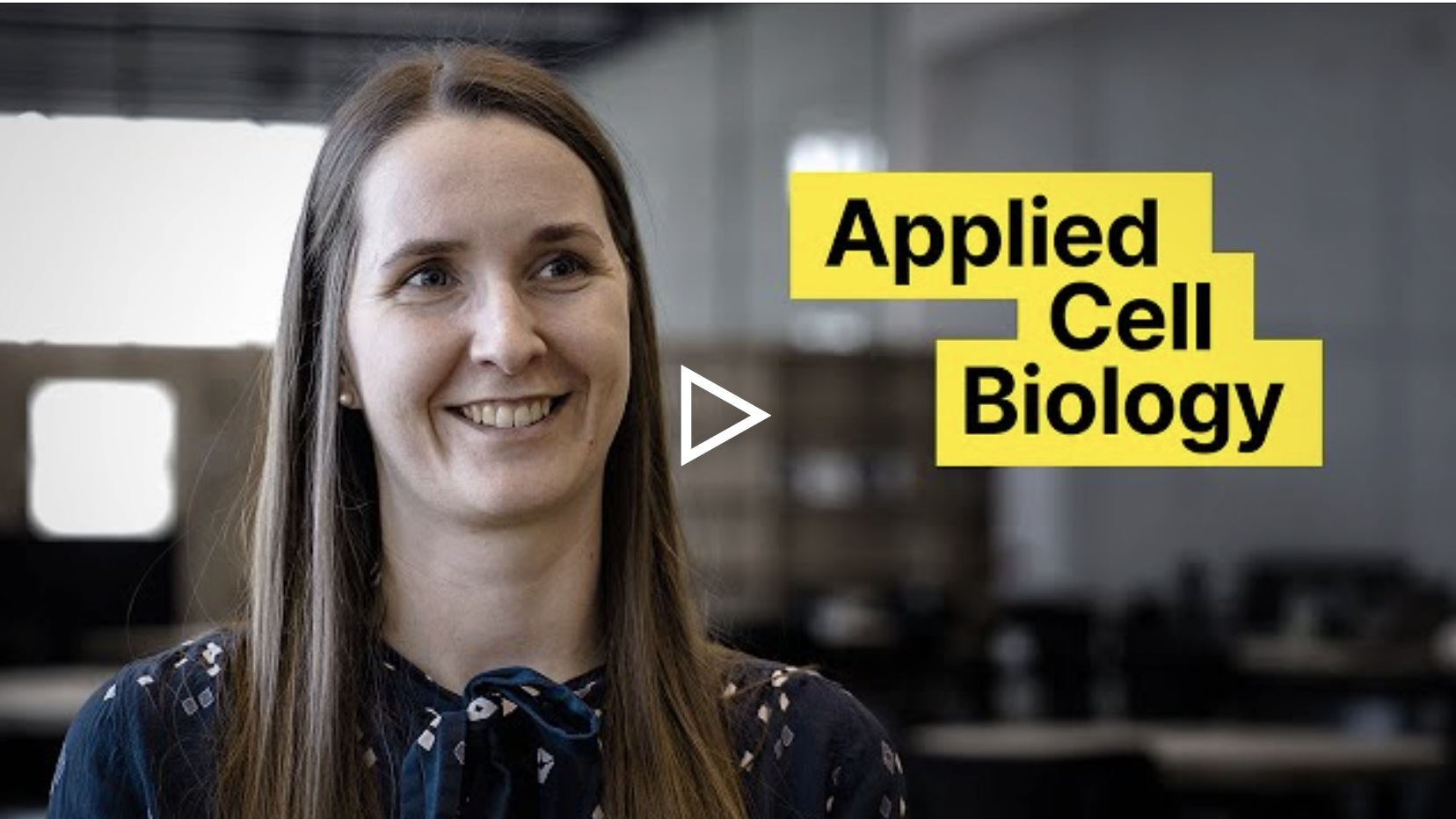MSc in Life Sciences - Applied Cell Biology
Hochschule für Life Sciences FHNW
Become an expert in Applied Cell Biology – from high-content screening to tissue engineering. The Master’s degree in Applied Cell Biology trains you to apply pioneering methods such as single-cell assays, complex microphysiological systems and automated cell cultures directly in the laboratory.

- Practice-oriented modules: You set up automated cell culture systems, apply high-content screening in real projects and work with state-of-the-art microphysiological systems.
- Individual study profile: Design your curriculum to suit your interests. With elective modules in Pharma Technology, Bioanalytics and Analytical Chemistry, you can define your own focus areas.
- Industrial and research careers: Gain valuable experience for careers in drug discovery, regenerative medicine and laboratory automation through practical assignments in research institutions and companies.
- International opportunities: Spend an exchange semester at one of our partner universities or do your master thesis abroad.
Steckbrief
Zukunftsaussichten
What career opportunities are open to you?
Applied Cell Biology is a fast‑growing field of great importance for biotechnology and pharmaceutical research. Rapid technological progress and the increasing use of cell‑based models make skilled graduates highly sought after. This programme equips you to contribute to drug discovery, pre‑clinical testing and regenerative medicine.
Typical areas of employment for graduates are:
- Pharmaceutical research and development: drug testing and the development of new therapeutic approaches.
- Biotechnology industry: manufacture of biological products and development of cell-based production systems.
- Regenerative medicine & tissue engineering: Development and application of cell-based therapies, e.g. with stem cells or tissue cultures.
- Pre-clinical research & assay development: Establishing test systems with mammalian cells as alternatives to animal testing (3Rprinciples: Replace, Refine, Reduce).
- Academic research institutions: Contribution to projects in cell technology, molecular biology or biomedical analysis.
Aufbau und Inhalte
The programme combines research‑driven and practice‑oriented training tailored to the needs of the pharmaceutical industry and the life sciences sector.
You will acquire advanced knowledge in the following areas:
- Cell engineering and high‑throughput assays: Development of cell‑based systems for drug discovery, especially high‑content and high‑throughput screening.
- Microphysiological systems: Application of complex, cell‑based models to simulate physiological conditions in industry.
- Cell imaging and analytics: Use of state-of-the-art imaging techniques to analyse cellular processes in high-content screening.
- Process and analysis automation: Automated workflows for efficient execution and evaluation of cell‑based assays.
- Electives from related fields: Specialisation opportunities in Analytical Chemistry, Bioanalytics, Biotechnology and Pharma Technology.
Interdisciplinary modules further support your development. These strengthen skills in:
- Project work and academic writing: Development of methodological and communication skills for research.
- Interdisciplinary collaboration: Work at the interface of biology, technology and data analysis.
- Career planning: Preparation for jobs in scientific and industrial sectors
-
-
-
-
A total of 50 ECTS credits (i.e. 17 moduleseach worth 3 ECTS credits) must be earned. Other modules can be selected: Module overview (English)
You can also plan your studies in advance with our MSc Life Sciences planning tool.
Details of the degree programme
Vertiefungen
International
The FHNW School of Life Sciences has over 20 partner universities around the world. Master’s degree students can spend one semester at a foreign university as part of their course. You can also complete the thesis abroad and thus gain work experience in a different country.
Further details are available from the international office and here partner schools.
Leitung und Dozierende
Voraussetzungen, Zulassung, Eignungsabklärung
Direct admission requires
If you do not fully meet the requirements, you may be invited to a personal interview.
Proof of sufficient English skills must be provided with one of the following certificates:
If you are unable to provide evidence of the required command of English, you are obliged to improve it during your master’s degree programme. You can either attend the advanced English course offered by the FHNW School of Life Sciences or other suitable language courses. At the end of the programme, proof must be provided that the required level of English has been achieved (see table above).
